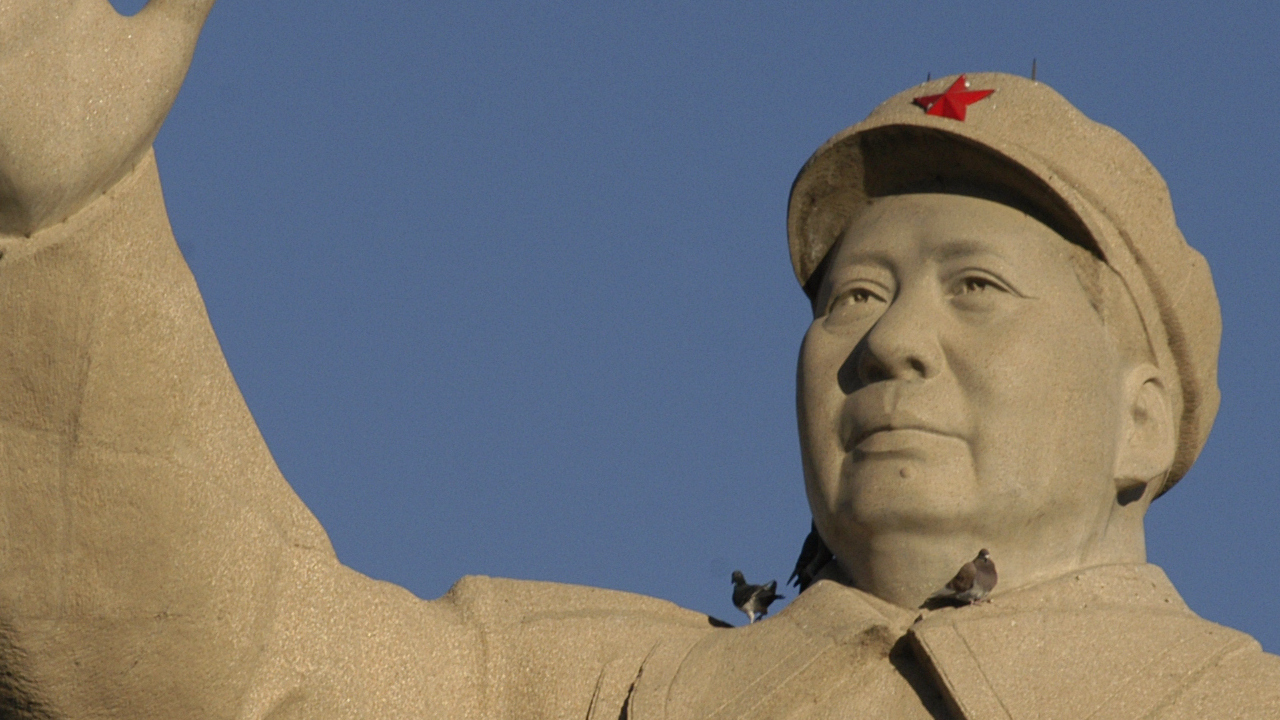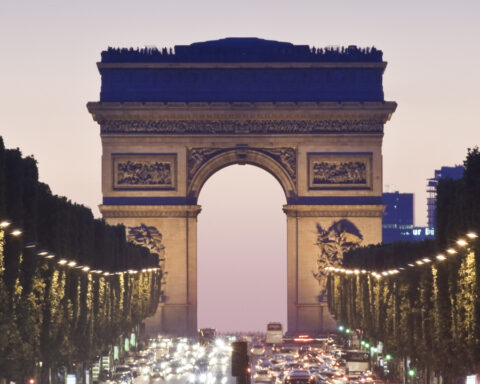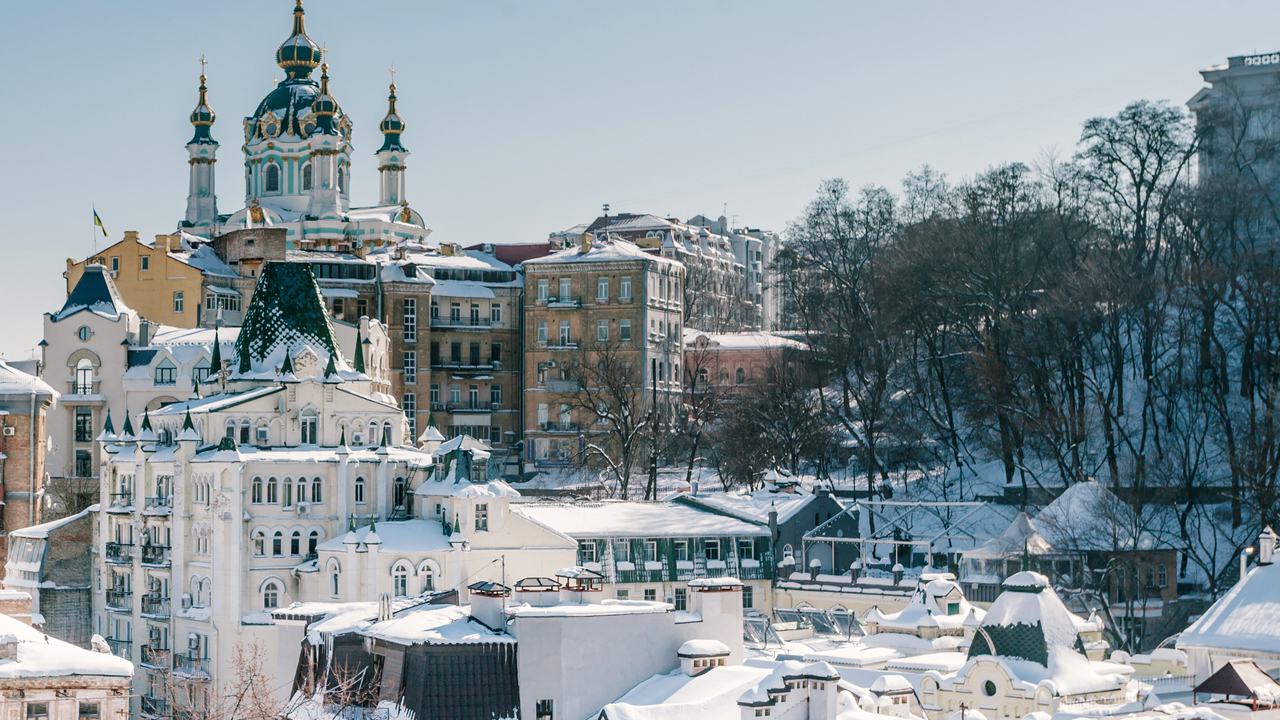Shortly after the Sino-Soviet Split, Mao began his purge of Chinese society from all capitalist and western elements via the Cultural Revolution. When he died on September 9, 1976, he left the country in a state of complete disarray, significantly economically weaker and politically isolated than it had been prior to his Revolution. Gary Krueger describes, “Not surprisingly, given the political instability and disastrous economic policies, the Chinese economy, as measured on a per capita GDP basis, was stagnant from 1952 to 1976. That is, growth in per capita GDP was basically zero for 25 years” (Krueger, 2007, p. 217). A group of CCP officials collectively known as the Gang of Four had amassed significant political influence during the latter stages of the Revolution, and when Mao died, they began plotting to seize power over his chosen successor Hua Guofeng. Chinese society was relatively split regarding the best way to move forward as a nation. Strong leftist and socialist proponents argued to continue policies surrounding complete self-reliance, political indoctrination, open admission to education, pay equalization, and increased agricultural collectivization. The other side of the spectrum was made up of most of the military and the bureaucracy, known as “civilian cadres.” This group, of which future leader Deng Xiaoping was a member, supported importing technology from the West, entrance examinations for higher education, an incentive-oriented pay system, and private land ownership opportunities (Domes, 1977). The Gang of Four, as the primary implementers of Mao’s Cultural Revolution, became an easy target for detractors who thought they were responsible for the economic and political turmoil afflicting China.
Hua, though he was more aligned with the socialist wing of the Party than the more market-oriented faction of which Deng was a part, saw an opportunity to separate himself from the Gang of Four. He acted pre-emptively before the cabal could act against him, arresting Jiang Qing, Zhang Chunqiao, Yao Wenyuan, and Wang Hongwen on October 6, 1976, less than a month after Mao’s death. Simultaneously, Domes adds, “most members of the Shanghai Municipal Party Committee, and a number of other followers of the Cultural Revolutionary Left, were arrested or purged, too. On 23 October a mass rally in Peking, more than half of which consisted of soldiers, celebrated the new Party leader, Hua Kuo-feng, who appeared in PLA uniform, thus indicating that the army had been the decisive factor in the critical confrontation” (Domes, 1977, p. 486). There is considerable argument over whether Hua was a leftist who betrayed his own supporters, whether he was a moderate who pretended to be a leftist to gain power under Mao, or whether he was simply a political opportunist. (Domes, 1997). Regardless, Hua emerged from this initial conflict relatively politically unscathed, with the state-run media and political machine working to promote his popularity. Hua had to be delicate, though, because Deng Xiaoping was a leader of the faction to which he had allied himself. He was therefore tolerant of Deng, while also allowing criticism of Deng to go unchecked (Newman, 1978). However, as Hua tried to carry out policies surrounding modernization, he “found it increasingly difficult to pre-empt the policy ground from Deng, who had argued for the heavy industrial path since the mid-1950’s, and who still had a large following” (Newman, 1978, p. 389). The stage was set for a showdown between Hua and Deng. Hua would lose.
Hua, after consolidating power and arresting the Gang of Four, developed a faction that Dorothy Fontana describes as the “Whateverists” – taking its name from Hua’s statement that “we will resolutely uphold whatever policy decisions Chairman Mao made, and unswervingly follow whatever instructions Mao gave us” (Fontana, 1982). This concept of supporting Mao even after his death backfired on Hua, who inherited the enemies that Mao made through his various purges. These enemies rallied around Deng. Deng was able to consolidate power in a unique way. He amassed power in the provinces, rather than in the Party, undermining, weakening, and replacing key Hua supporters in the various Chinese territories and municipalities at every opportunity. As a result, he “was thus able to do something never before achieved in a communist country: he rose to power through the state and not through the party apparatus” (Fontana, 1982, p. 250). As he continued to consolidate power in the provinces, he began to purge Hua’s supporters by attacking their prior history of support for the Cultural Revolution. By the time of the Third Plenum of the CCP in December 1978, the Whateverists had been significantly reduced, with many of their strongest leaders having lost their positions.
Hua, though, still held sway within the CCP, and still held the official positions of Chairman and Premier. In order to shake the Party of Hua’s influence once and for all, Deng had to be careful not to alienate those who still felt affinity for Mao, while also catering to his allies who shared his vision of forging a new path for China. Deng’s first goal was to recruit and cultivate talent, and remove the last vestiges of radical officials who had replaced veteran politicians and bureaucrats during the Cultural Revolution – which would also weaken Hua further (Vogel, 2011). Ezra Vogel states, “By the summer of 1979, most of the senior party officials had returned and occupied key positions, replacing the soldiers and radicals who had occupied key positions during the Cultural Revolution. Hua was sufficiently weakened by the summer of 1979 that he could no longer play a major role in party building. With Deng and his senior officials in charge, they could reach considerable agreement on the kind of officials they were seeking to cultivate” (Vogel, 2011, p. 352). Deng had already articulated his proposed “Four Modernizations” of strengthening the fields of agriculture, industry, science and technology, and defense – now it was time for him to promote progressive leaders who would support and implement these modernizations. To that end, he removed conservative Politburo members, and replaced them with officials capable in the realms of foreign trade, finance, technology, science, and management – which was a fundamental change in China at the time (Vogel, 2011). Just as importantly, he tasked his new leadership team with recruiting new talent, based on university educated professionals. By 1980, Deng was firmly in control of the CCP. In 1981, he was finally able to strip Hua of his major titles. Though Hua would remain a member of the Central Committee until 2002, he was so marginalized that he was no longer able to exert a modicum of his former influence. Deng’s reign had begun.
Photo by Tanukiphoto, GettyImages.
Jack McPherrin is the managing editor of 1818 Magazine. Jack works as the research editor for the Editorial Department of The Heartland Institute, where he also contributes to the mission of the Socialism Research Center as a research fellow. He is in the final stages of completing his Master’s Degree in International Affairs from Loyola University-Chicago, where his myriad research interests primarily encompass domestic and international economic policy, global institutions, authoritarian regimes, and foreign affairs - with a particular emphasis upon Russia and China. Prior to his graduate pursuits, Jack spent six years in the private sector after graduating from Boston College with a dual Bachelor's Degree in Economics and History. He currently resides in the Lincoln Park neighborhood of Chicago, a few short miles from where he was raised.







